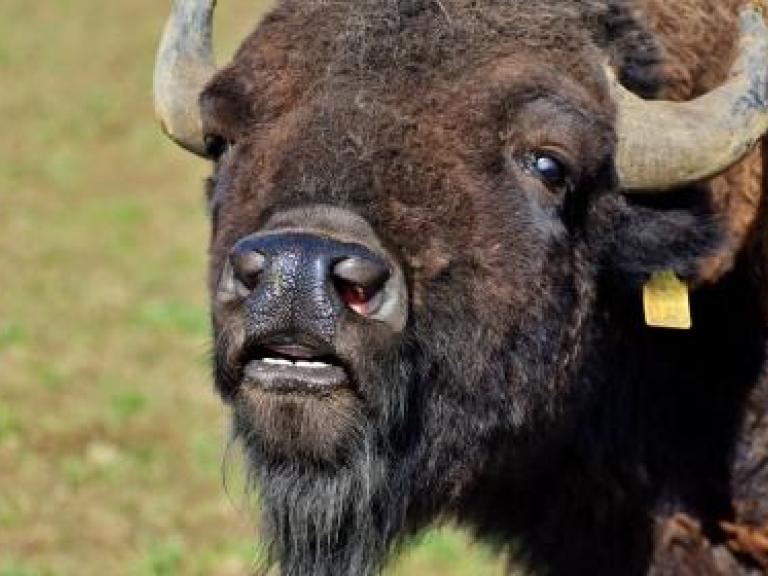In the UK and Wales, some pioneering producers have found a ready market for bison meat. It is considered to be a healthy red meat alternative to traditional beef products being lower in fat, cholesterol and sodium. It also has a very similar protein content, is lower in calories and is high in iron and vitamin B12.
Compared to beef in the UK, bison meat is worth considerably more, with deadweight prices for bison approximately twice that for cattle, and retail prices for bison meat frequently more than 1.5 times that of beef.
As such, bison are considered as one option for farmers looking to diversify. However, bison are challenging not only due to their temperament and sensitivity to stress but also their increased susceptibility to malignant catarrhal fever (MCF), which is considered the disease-limiting factor to successful production.
MCF (caused by the virus OvHV-2) can affect cattle, bison, water buffalo, deer and yak and whilst sheep are considered the main reservoir host, recent work suggests a large proportion of cattle can also carry the virus subclinically. However, bison, buffalo and deer are considered to be much more susceptible than cattle and this is one of the main hurdles for farmers wanting to diversify into this lucrative niche market.
This project, involving one bison holding and two buffalo holdings will investigate how the disease can be controlled on farms in Wales.
The project plan
- Blood samples will be taken from bison/buffalo on each farm to test if they are, or have been exposed to OvHV-2.
- Blood samples will be collected from other livestock on the farms e.g. sheep, deer and cattle to test if they have been exposed to OvHV-2, which will determine whether other livestock on the farms are potential sources of infection.
- The blood, along with pooled faecal samples will also be tested to see whether the bison/buffalo have been exposed to other infectious disease or parasites that could potentially increase their risk of developing MCF.
- A new vaccine against OvHV-2 will be used on the bison holding, known to have an MCF problem, to assess whether it is a practical option for controlling MCF on farms.
- A disease control package will be formulated on the basis of the above results and tested for a further 12 months to assess its success on each farm.
Very little is known about MCF and if it can be controlled in the context of bison/buffalo farming. Hopefully this project will determine possible steps that farmers can take to control MCF, which is currently lacking within the niche sector. This should provide useful information for producers considering this as a diversification option and provide examples of control to help those at the start of the process.
European Innovation Partnership (EIP) is part of the Co-operation and Supply Chain Development Scheme (CSCDS) delivering under Measure 16 (Article 35 of Regulation (EU) 1305/2013). The CSCDS is an important element of the Welsh Government Rural Communities - Rural Development Programme 2014-2020. The EIP delivers under sub Measure 16.1 of the Welsh Government Rural Communities - Rural Development Programme 2014- 2020.
Menter a Busnes has been awarded the contract for delivering EIP in Wales on behalf of the Welsh Government.
If you would like to learn more about EIP Wales contact the team at eipwales@menterabusnes.co.uk or fill in the Contact Us form

